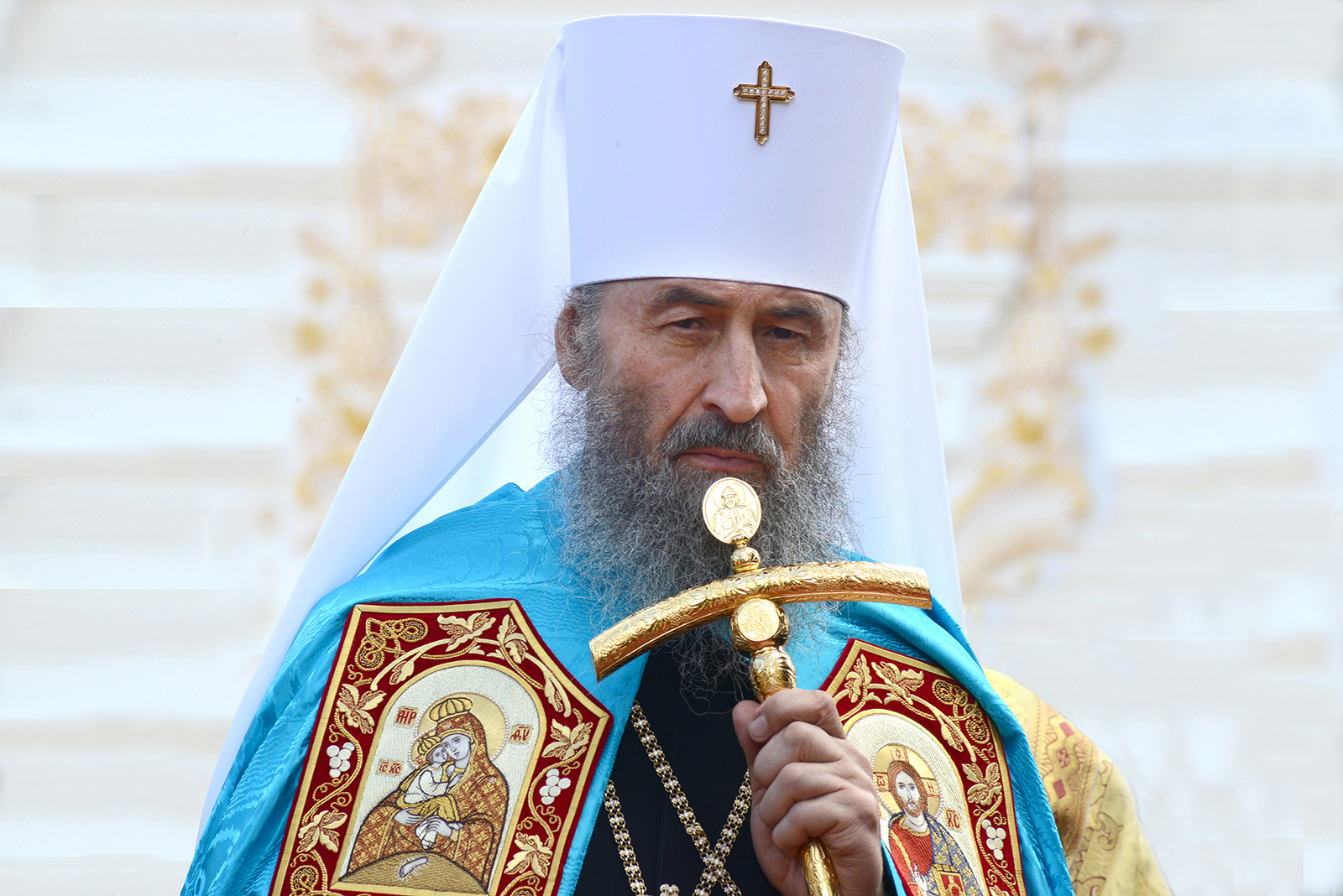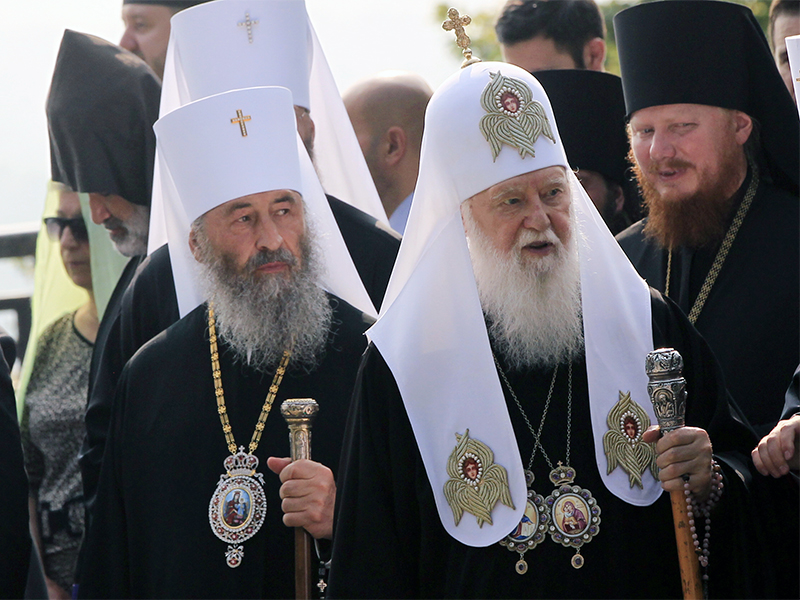
WARSAW, Poland (RNS) — Ukrainian authorities moved Wednesday (July 2) to strip Metropolitan Onufriy, the head of the Ukrainian Orthodox Church, of his Ukrainian citizenship, citing alleged ties between Onufriy himself, as well as the church he leads, with Moscow.
Since 2018, Ukraine, whose population is primarily Eastern Orthodox, has two competing Orthodox church bodies, the Ukrainian Orthodox Church, which is under the jurisdiction of the Moscow Patriarchate, and the Orthodox Church of Ukraine, formed in the wake of Russia’s 2014 annexation of Crimea and support of separatist militias in the Donbas region.
The break with Moscow came in response to a call from Ukrainian clergy for a religious body divorced from Patriarch Kirill, a close ally of Russian President Vladimir Putin who justified Russia’s aggression in spiritual terms. In 2019, the OCU was recognized as fully independent of Moscow under the blessing of the Ecumenical Patriarchate of Constantinople Bartholomew I.
Since then, a large number of Ukrainian churches have moved to the OCU, while the historic church, along with other arms of the Russian Orthodox Church abroad, were accused of spreading Russian pro-war propaganda and of serving Russia’s intelligence services.
The Ukrainian Parliament has brought forth a series of bills to ban or otherwise outlaw religious movements with ties to Russia, which most have considered designed to target the UOC.

Metropolitan Onufriy, left, the head of the Ukrainian Orthodox Church under the Moscow Patriarchate, and Filaret, center, head of the Ukrainian Orthodox Church-Kyiv Patriarchate, take part in celebrations to mark the adoption of Christianity in Kyiv, Ukraine, on July 28, 2016. (AP Photo/Sergei Chuzavkov)
Wednesday’s statement from Ukraine’s security service repeated these claims, saying Onufriy “maintains ties with the Moscow Patriarchate and deliberately opposed the acquisition of canonical independence of the Ukrainian Church from the Moscow Patriarchate, whose representatives openly support Russian aggression against Ukraine.”
It also accused him of supporting “the policy of the Russian Orthodox Church and its leadership, in particular Patriarch Kirill,” and “the aggressive policy of the Russian Federation.”
Onufriy, however, has denied such claims, arguing that his church had cut its ties to Moscow as early as May 2022, a few months after the onset of the Russian invasion.
“For three years, our motherland has been suffering from the horrible bloodshed that the Russian army, which takes away the lives of our fellow countrymen literally every day, has brought to our Ukrainian land,” he said in an address in February, on the third anniversary of the outbreak of the war. “The Ukrainian Orthodox Church, regardless of slander, speculation and artificial accusations, remains with her people, caring about their well-being and the coming of a just peace in our motherland.”
Nonetheless, Ukrainian security services have launched a series of investigations against UOC priests and convicted dozens of aiding the Russian invasion. Just two days before stripping Onufriy’s citizenship, the UOC Metropolitan of the occupied Luhansk region was sentenced in absentia to 11 years in prison.
Despite Onufriy’s claims of separation, Kirill and Russia’s foreign minister, Sergey Lavrov, have previously spoken out in his and the UOC’s defense, considering it to be a canonical part of the Russian Orthodox Church. Russia has also accused Ukraine of “waging a war on the Russian Orthodox Church.”
Onufriy becomes at least the seventh UOC leader to have his citizenship revoked, following actions against six other hierarchs in 2023, but he is the most senior cleric to lose his rights.
The measures taken against the UOC have drawn criticism from international religious freedom watchdogs and religious leaders outside Ukraine. In August 2024, Pope Francis urged Ukrainian leaders to “let those who want to pray be allowed to pray in what they consider their Church.”
